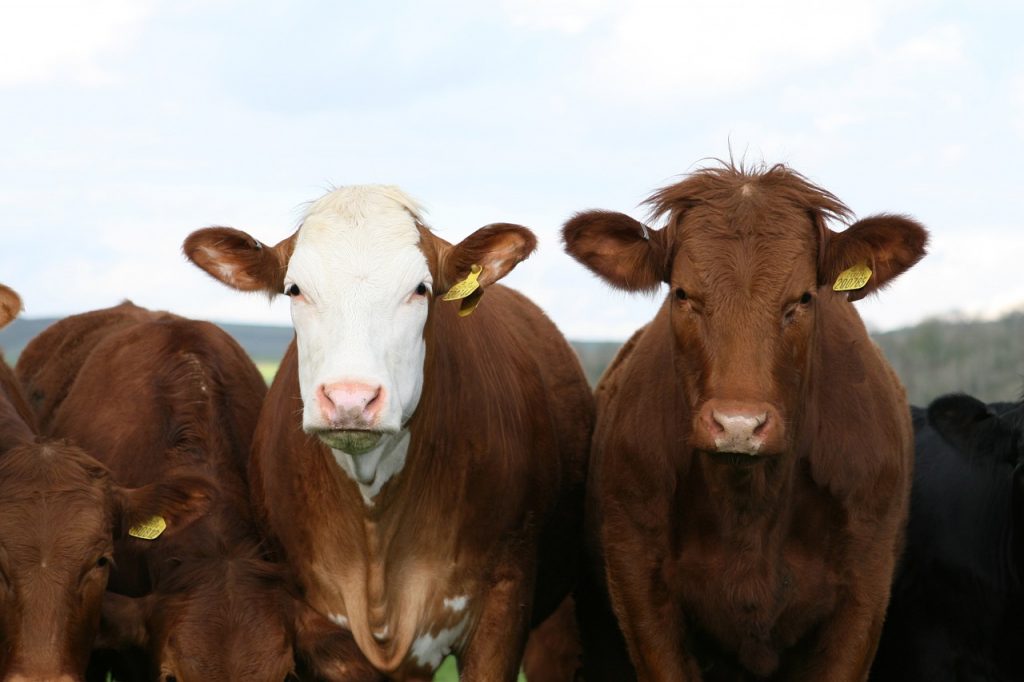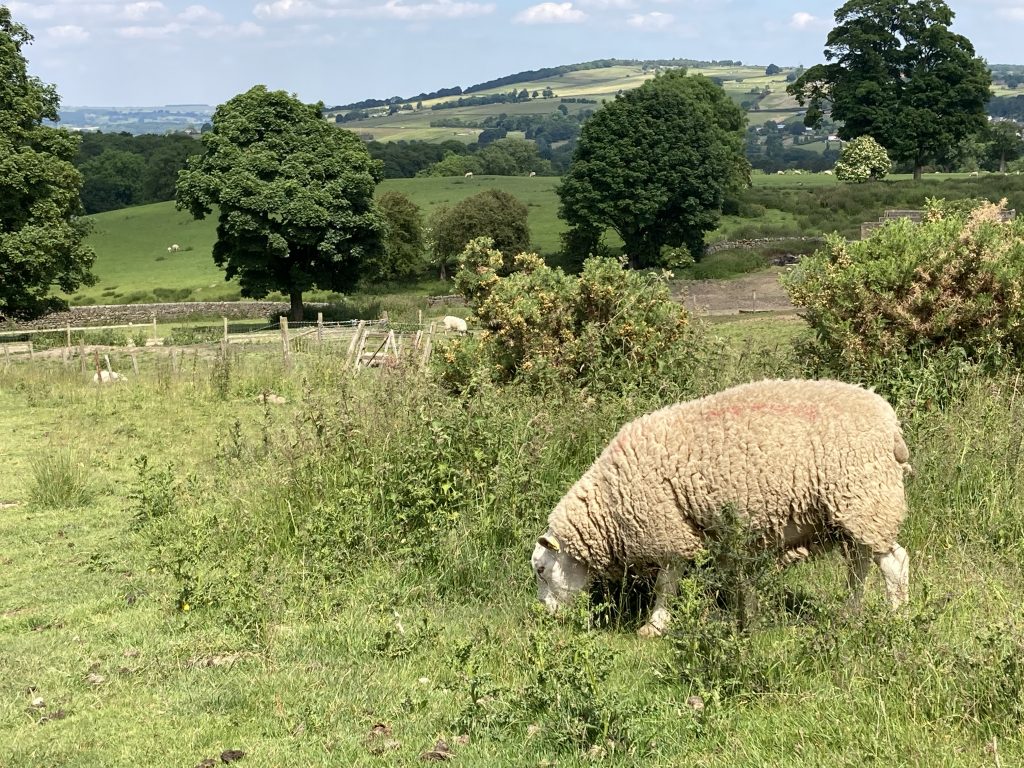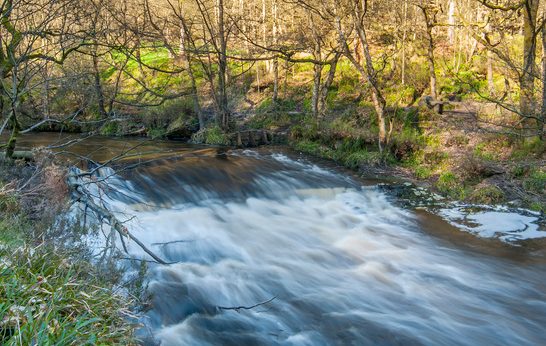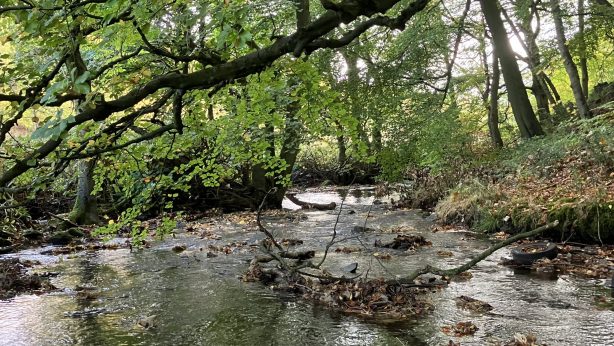Defra’s Sustainable Farming Incentive Update, and the Calder Catchment
Last week, Defra released further information about the early rollout of the new Sustainable Farming Incentive (SFI) in Spring 2022. SFI will be the most basic tier of ELMS, designed to be accessible to most farmers and to be applied by individual farmers at field level. Farmers will be able to choose from a set of standards, and from levels of ambition within those standards, to put their own package together.
The spring rollout will open up the first standards for application. These first standards will be: the Arable and Horticultural Soils Standard, the Improved Grassland Soils Standard and the Moorland and Rough Grazing Standard, although this last standard will only offer introductory level in the first instance. Alongside these standards, we will see the launch of the Annual Health and Welfare Review. At this stage, the application deadline for SFI has not yet been announced, but we are looking at a ten week application window. After 2024, Defra is planning to accept applications all year round.
What Payments Have Been Confirmed?
Payment rates for these first standards at lower levels have been confirmed. Advanced level payments will be confirmed from 2023 onwards. These figures are total per ha per year, i.e. the payments for an intermediate level agreement will be a standalone figure, not stacked on top of the smaller payment for introductory level work.
Arable and Horticultural Soils Standard
| Introductory | Intermediate | Advanced |
| £22/ha | £40/ha | TBC |
Improved Grassland Soils Standard
| Introductory | Intermediate | Advanced |
| £28/ha | £58/ha | TBC |
Moorland and Rough Grazing Standard
| Introductory | Intermediate | Advanced |
| £148 per agreement per year + a variable rate of £6.45/ha | TBC | TBC |
Payments for visits by vets of vet-led teams for the Annual Health and Welfare Review will be:
| Pigs | £684/review |
| Sheep | £436/review |
| Beef cattle | £522/review |
| Dairy cattle | £327/review |
What is There for Upland Farmers?
The inclusion of the Moorland and Rough Grazing Standard is a welcome addition to the early SFI rollout, which acknowledges the enormous part which the uplands can play in delivering public goods. However, we only have access to the introductory ambition level so far, for which payment rates are low. This standard is also less developed than the other two on offer for 2022, and is to be finalised in the New Year. Actions under this standard currently focus on assessment and recording only. While identifying public goods is listed, farmers are referred back to CS and HLS to fund physical actions.
We will not see any standards for low and no-input grassland in 2022. Defra anticipates this standard arriving in 2024.

What is There for Livestock Farmers?
For livestock farmers, there is the Annual Health and Welfare Review. This is the first step on the Animal Health and Welfare Pathway. Defra expects the review to help reduce endemic diseases and conditions in livestock, to promote responsible use of veterinary medicines, to improve welfare and increase farm productivity, and to build on existing strong relationships between farmers and vets. The funding for an Annual Review is available to farmers who are eligible for BPS and have more than 50 pigs, 20 sheep or 10 cattle.
Defra suggests that each yearly visit should take 2-3 hours and says that information collected during the visit will not be used for regulatory or inspection activity. The vet or vet-led team doing the inspection will be chosen by the farmer. Defra hopes that this funding will help to embed annual reviews as a part of normal business practice, but only plans to offer the funding for 3 years, to be followed by a review.
What is There for Commons Graziers?
Common land will be eligible for SFI through group agreements. A group of farmers who graze common land can act as a single entity to receive SFI. How this single group is formed and how the SFI money is shared is entirely up to the farmers in that group, and Defra will have no involvement in this. If one or more people have used a common to claim BPS in the past 2 years, than that common is considered to pass the BPS eligibility test for SFI. The group will also need to prove that they have “sufficient management control” of the land to be able to deliver on the SFI agreement they make. Defra says: “This is a judgement for the single entity to make. It does not necessarily mean that every single commoner needs to agree and become part of the single entity, but it does mean that those that are party to the single entity need to be able to deliver the actions in the agreement.” All other parties with a legal interest in the common must be notified that an SFI application is being made.

How Will SFI Work for Tenant Farmers?
Defra has come under criticism for not creating a scheme which works for tenant farmers. The biggest issue will be for those who have Farm Business Tenancies. SFI has an advantage over Countryside Stewardship for tenants in that it is only a 3 year commitment, rather than 5, and it offers chances to amend the agreement at 12 month intervals, however this is not planned to be an opportunity to move to lower ambition levels, and withdrawal from an agreement will only be allowed in “exceptional” circumstances.
While the shorter commitment may open SFI to tenants for whom the application window aligns with assuming management control of the land, it is likely to remain problematic for those on Farm Business Tenancies who cannot guarantee management control for the 3 year term.
What Does This Mean for Farmers in the Calder Catchment?
Unfortunately it seems that options for most farmers in the Calder Catchment to get involved with the new SFI will be severely limited for at least the next few years. Defra has indicated that Low and No Input Grassland standards are unlikely to be introduced until 2024, when the intermediate and advanced levels of the Moorland and Rough Grazing standard are also planned to be launched. 2024 should also see standards coming out for Water Body Buffering and Farmland Biodiversity, while On Farm Woodland, Heritage and Dry Stone Walls standards are currently scheduled for 2025. How attractive these standards will be remains to be seen. There are also no capital payments for SFI in 2022, although farmers can apply for these under existing Defra capital offers such as Countryside Stewardship. This might present difficulties in joining up and balancing out two separate applications.
While the early rollout of the introductory level of the Moorland and Rough Grazing standard is encouraging, the payments are unlikely to cover BPS losses, and the need to avoid overlap between the new standards and existing schemes means that opportunities may be limited.
The lack of a soil-specific standard for low and no-input grasslands or uplands is disappointing. We know that healthy soils at all levels within the catchment are really important for reducing flood risk and maintaining healthy watercourses. In steeply sloping catchments like ours, keeping the soils on the hillsides and slowing the flow of water running off the uplands is crucial to reducing the sudden, ‘flashy’ flooding we have seen in recent years. We would have liked to see more support for the vital role of upland farmers and their soils in reducing flood risk and managing valuable habitats through careful and considered grazing.
However, Countryside Stewardship applications will remain open until 2024. Defra says:
Upland and unimproved grassland farmers should enter into or continue in [existing] schemes and we will provide a smooth way for them to transfer into SFI when the relevant standards are ready.”
For those who are looking to replace falling BPS payments, or who simply want to get some experience in providing environmental public goods, sticking with the known quantity of Countryside Stewardship may be the best course of action for now.
Further Information
Further information about the 2022 rollout and future plans for the SFI can be found at:
https://defrafarming.blog.gov.uk/2021/12/02/sfi-standards/
https://defrafarming.blog.gov.uk/2021/12/06/how-the-sustainable-farming-incentive-will-develop/
https://defrafarming.blog.gov.uk/2021/12/02/sfi-and-tenants/
https://defrafarming.blog.gov.uk/2021/12/02/introducing-the-moorland-and-rough-grazing-standard/


